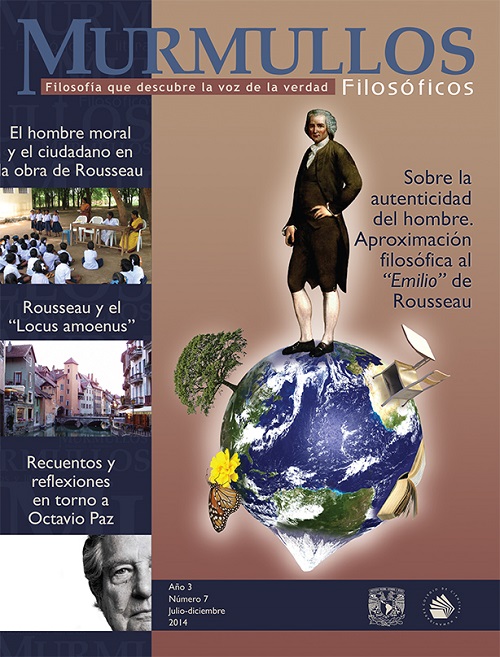El hombre moral y el ciudadano en la obra de Rousseau
Main Article Content
Abstract
Rousseau, one of the greatest critics of the Enlightenment, recovers an idea of man that underlies the different experiences that daily force us to think about ourselves in crisis. Firm and convinced that humanity can claim through education, Rousseau reminds us the traits that we are naturally and that establish the basis for political life. Thus the moral man and citizen converge on the need for one common life with others. The state of nature is not a mere naïve fiction, as while it describes the man characterized by piety, love, freedom, and consciousness, reunifies the man idea, gives integrity that is already forgotten. It criticizes the selfishness and accompanies the realization of freedom and justice within the civil status. Let us keep questioning about the egalitarian ideal that the social contract postulates and the necessity of freedom for the real moral life.
Article Details
Citas en Dimensions Service

Murmullos Filosóficos by Escuela Nacional Colegio de Ciencias y Humanidades is licensed under a Creative Commons Reconocimiento-NoComercial-CompartirIgual 4.0 Internacional License.
Creado a partir de la obra en www.revistas.unam.mx/index.php/murmullos.

